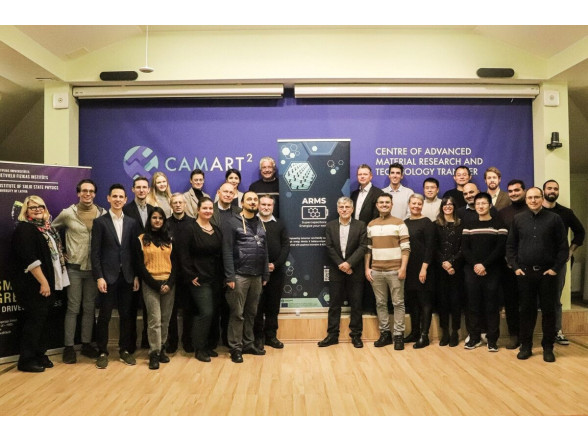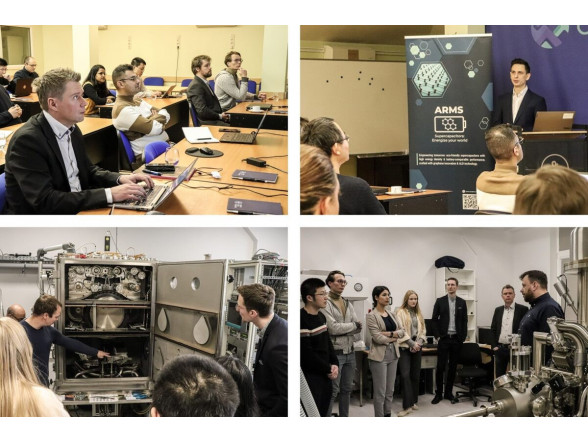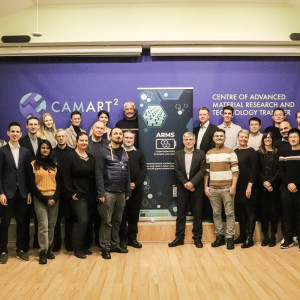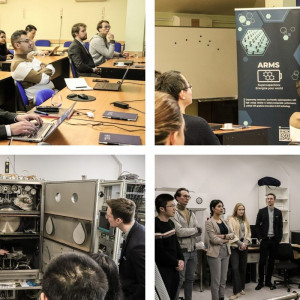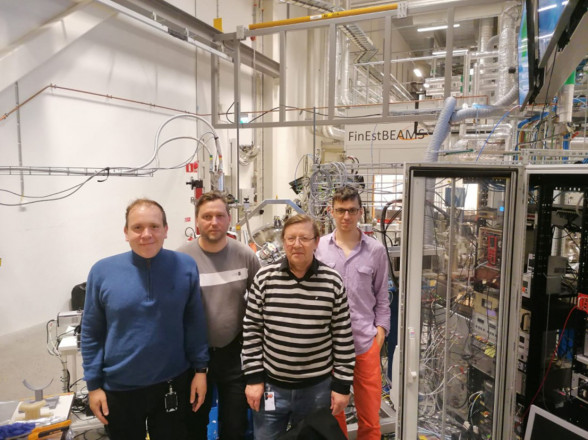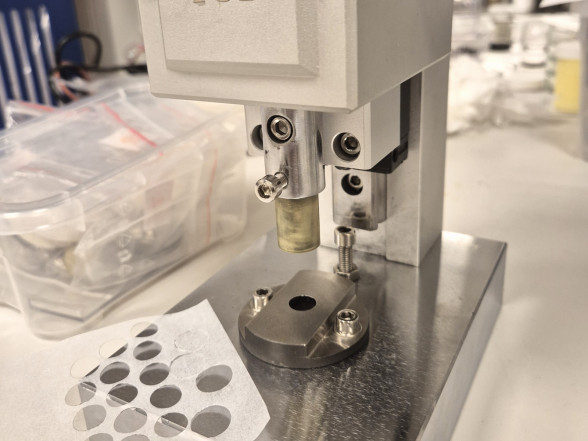On November 5-6, the Institute of Solid State Physics, the University of Latvia (ISSP UL) hosted a consortium meeting for the EU-funded Horizon Europe project, ARMS. The ISSP UL is one of 11 partners from six European countries involved in this initiative, which includes Tampere University (Finland), KTH Royal Institute of Technology (Sweden), CIDETEC (Spain), InnoCell ApS (Denmark), Latvian State Institute of Wood Chemistry (Latvia), University of Southern Denmark (Denmark), AIMEN Technology Centre (Spain), Beneq Oy (Finland), Chalmers University of Technology (Sweden), and Lynxdrone (France). The meeting was a significant milestone, marking the substantial progress made in the ARMS project.
Represented by its Energy Materials Laboratory, ISSP UL leads Work Package 1 (WP1), which focuses on synthesizing graphene-containing carbon-based electrodes while overseeing communication efforts under WP7. The lab specializes in electrochemical and structural characterization and is equipped with advanced tools for analyzing supercapacitor materials. The goal is to develop innovative carbon materials for high-performance electrodes, collaborating closely with INNOCELL, the Latvian State Institute of Wood Chemistry, and researchers from Tampere University.
With WP1 spanning three years, one-third of its tasks have been completed. Current efforts focus on optimizing materials for larger-scale production and characterizing their properties to improve project outcomes.
During the Riga meeting, partners presented their progress and findings from the project’s first year. Engaging discussions not only focused on the results of the initial four work packages but also on the future collaboration strategies. This allowed participants to evaluate achievements and strategize for future collaborations on both technical and research tasks, ensuring that everyone felt included and part of the project’s future. Feedback from the External Advisory Board members offered valuable insights to guide the next steps.
At the end of the first day, project partners enjoyed a guided tour of the ISSP UL laboratories, which showcased the state-of-the-art equipment and research facilities available for WP1 research, further enhancing their understanding of the resources utilized in the project.
For more information about the project, visit the ARMS website.
The ARMS project (Atomic Layer-Coated Graphene Electrode-Based Micro-Flexible and Structural Supercapacitors) aims to innovate environmentally friendly supercapacitors. The project seeks to combine advanced materials and processes, including bio-based carbon materials rich in graphene and graphene-coated carbon fibers. Moreover, the consortium is dedicated to developing scalable and cost-effective manufacturing technology through atomic layer deposition (ALD).
The ARMS supercapacitors aim for an energy density exceeding 50 Wh/kg, comparable to batteries while maintaining excellent power density, long cycle life, and eco-friendliness. This initiative presents exciting opportunities to establish a new value chain for supercapacitor manufacturing, positioning European small and medium-sized enterprises (SMEs) as key players in this industry.
